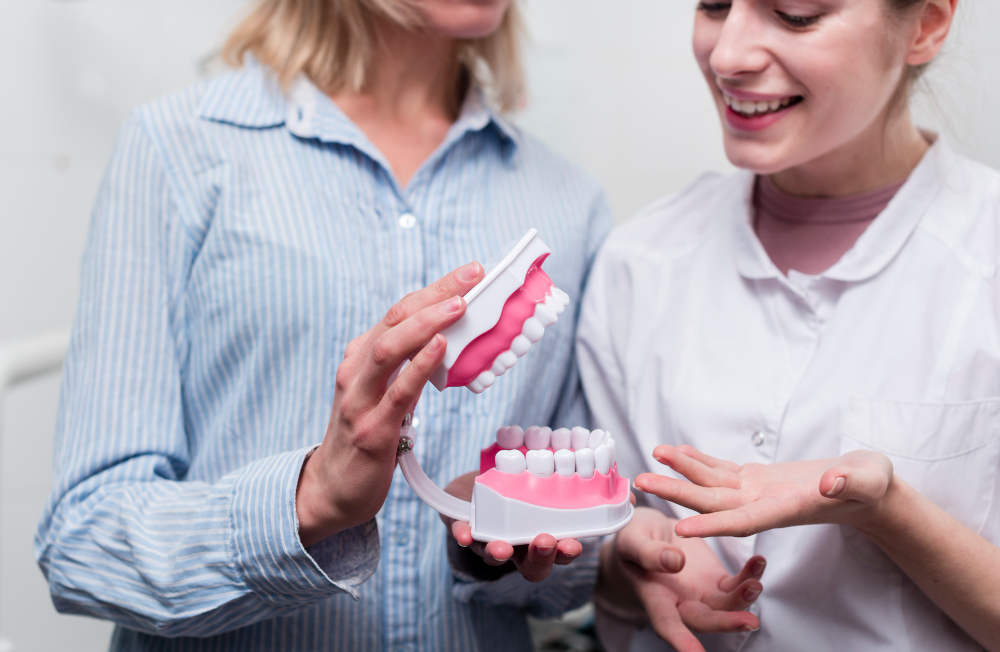
When teeth fall out, there are a few options for getting new ones. One option is dentures. Although adjusting to dentures may be challenging, choosing a pair that fits well can make a difference. When dental implants aren’t an option due to discomfort or invasiveness, dentures are a good alternative. Getting dentures might be a great choice since they are helpful, comfortable, and easy to wear all day.
Various Types of Dentures
Finding the correct denture from the variety available might be a real challenge. The following are the most prevalent kinds of dentures:
· Partial Dentures
This kind of denture is the best option when a few healthy teeth are still visible. Partial dentures, which cover the spaces caused by missing teeth, can restore dental health.
· Full Dentures
When a person’s natural teeth are lost, they will need these dentures. Once they have been shaped to fit over the gums, they are suction—or lightly adhesive-secured.
· Implant-Supported Dentures
A dental implant secures these dentures in place, as the name implies.
· Snap-in Dentures
Dental implants or anchors are affixed to the natural teeth to stabilise and secure these dentures.
Considerations for Ideal Denture Comfort
Denture comfort is affected by several variables, including:
· Materials
There are many different kinds of denture materials, and they all have pros and cons. Modern dentures may be constructed of more comfortable materials, such as flexible plastic, although traditional ones usually contain acrylic. Choose the best material for you by researching your options and consulting with your dentist.
· Personalisation
Get customised dentures made for a more comfortable fit. Dentures are custom-made for each patient by taking precise measurements and making impressions of the mouth. The personalised fit reduces pain and enhances the overall fit, so you can eat and speak with more assurance.
· Visual Appeal
Dentures must mix nicely with your natural teeth, gums, and facial structure so they seem natural. With careful planning, a denture may restore your smile’s natural beauty and functionality. Teeth must be considered in size, form, colour, and arrangement.
· Adjustment Time
Adjusting to a comfortable denture should take a little time so that you can return to your routine as soon as possible.
Conclusion
Your tastes and level of comfort must be considered. Because you are all different, the things one person finds comfortable might not be enough for another. Your dentist can help you get a comfortable denture by discussing your requirements, expectations, and preferences.


